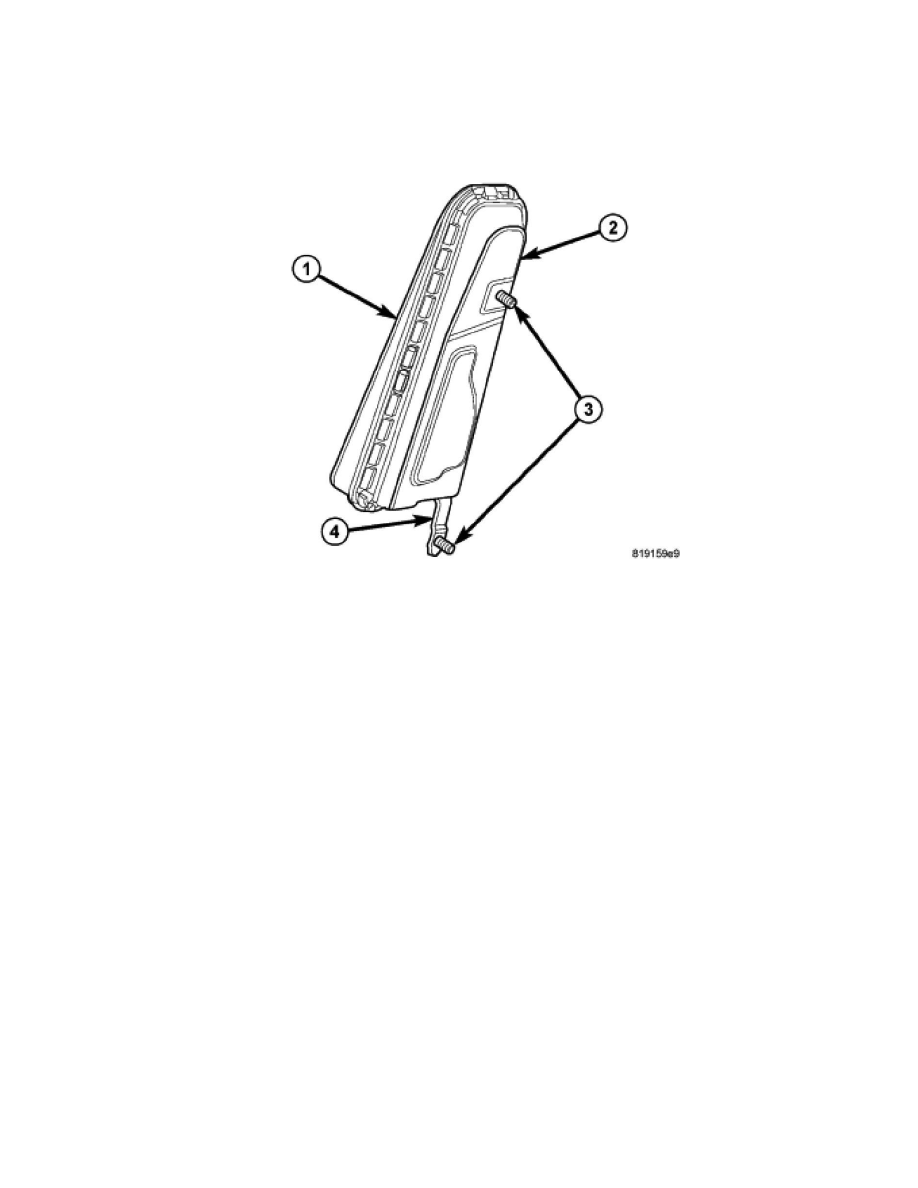Patriot 2WD L4-2.0L (2008)

Air Bag: Description and Operation
Seat Airbag
Description
DESCRIPTION
The seat airbags (also known as thorax airbags) are completely concealed beneath the seat back trim cover on the upper outboard sides of both front seat
backs. These airbags are inserted into a sewn pouch on the inside of the trim cover, then secured to the seat back frame by nuts on two studs (3). One
stud is located on the stamped metal airbag housing (2), while the second stud is located on the stamped metal airbag lower bracket (4).
The folded seat airbag cushions are contained within a retainer wrap (1) constructed of the same material as the airbag cushion. The retainer wrap
completely encloses the airbag cushion and is engaged over the stud on the housing for retention. The airbag cushion is constructed of a coated nylon
fabric.
The airbag housing contains the airbag inflator and a heat shield. The airbag inflator is a single-initiator, pyrotechnic-type unit that is secured to and
sealed within the airbag housing. The seat airbag is connected to the vehicle electrical system through a dedicated take out of the seat wire harness with a
connector insulator that connects directly to the inflator initiator. The connector insulators are uniquely keyed and color-coded to ensure they can only be
connected to the initiator.
The seat airbag cannot be repaired, and must be replaced if deployed, ineffective, or in any way damaged. If the seat airbag is deployed, the seat back
frame, the seat back foam cushion, the seat back trim cover and the seat wire harness must also be replaced.
Operation
OPERATION
Each seat airbag is deployed individually by an electrical signal generated by the Occupant Restraint Controller (ORC) to which it is connected through
left or right seat airbag line 1 and line 2 (or squib) circuits. The hybrid-type inflator assembly for each airbag contains a small canister of highly
compressed inert gas. When the ORC sends the proper electrical signal to the airbag inflator, the electrical energy creates enough heat to ignite chemical
pellets within the inflator.
Once ignited, these chemicals burn rapidly and produce the pressure necessary to rupture a containment disk in the inert gas canister. The inflator and
inert gas canister are sealed and connected so that all of the released gas is directed into the folded seat airbag cushion, causing the cushion to inflate. As
the airbag cushion inflates it will split the retainer wrap, the sewn pouch and the outboard side of the seat back trim cover and expand into the area
between the outboard side of the front seat and the front door to form a cushion to protect the front seat occupant during a side impact collision or a
vehicle rollover incident.
Following the airbag deployment, the airbag cushion slowly deflates by venting the inert gas through the loose weave of the cushion fabric, and the
deflated cushion hangs down loosely from the outboard side of the front seat back.
